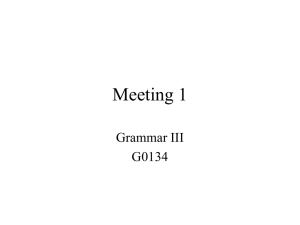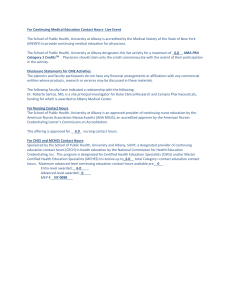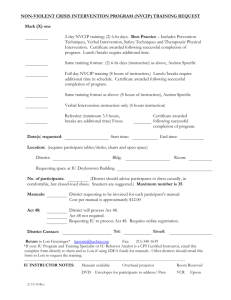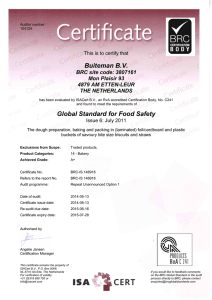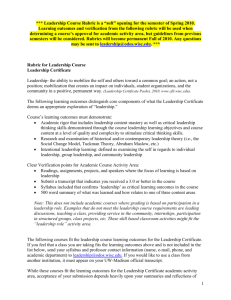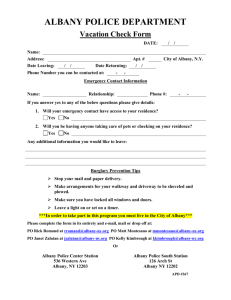Distance Education Program Application
advertisement
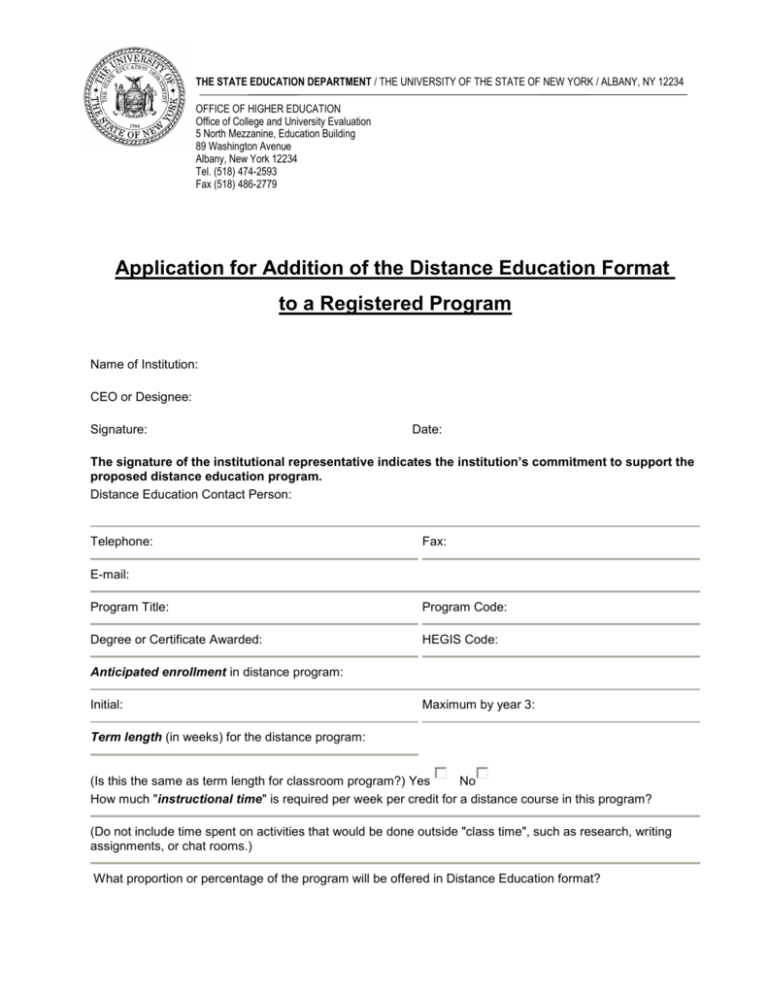
THE STATE EDUCATION DEPARTMENT / THE UNIVERSITY OF THE STATE OF NEW YORK / ALBANY, NY 12234 OFFICE OF HIGHER EDUCATION Office of College and University Evaluation 5 North Mezzanine, Education Building 89 Washington Avenue Albany, New York 12234 Tel. (518) 474-2593 Fax (518) 486-2779 Application for Addition of the Distance Education Format to a Registered Program Name of Institution: CEO or Designee: Signature: Date: The signature of the institutional representative indicates the institution’s commitment to support the proposed distance education program. Distance Education Contact Person: Telephone: Fax: E-mail: Program Title: Program Code: Degree or Certificate Awarded: HEGIS Code: Anticipated enrollment in distance program: Initial: Maximum by year 3: Term length (in weeks) for the distance program: (Is this the same as term length for classroom program?) Yes No How much "instructional time" is required per week per credit for a distance course in this program? (Do not include time spent on activities that would be done outside "class time", such as research, writing assignments, or chat rooms.) What proportion or percentage of the program will be offered in Distance Education format? Part A: Institution-wide Issues: Submit this part for the first Distance Education program proposed by your institution. This will be kept in a master file, and will not need to be resubmitted for each new proposed online program, unless there are changes. I. II. ORGANIZATIONAL COMMITMENT 1. Describe your institution’s planning process for Distance Education, including how the need for distance access was identified, the nature and size of the intended audiences, and the provisions for serving those audiences. 2. Describe your institution’s resources for distance learning programs and its support services to ensure their effectiveness. What course management system does your institution use? 3. Describe how faculty are trained and supported in developing and teaching online courses, including the pedagogical and communication strategies to function effectively. Describe the qualifications of those who train faculty, or are otherwise in charge of online education. 4. If your institution uses courses or academic support services from another provider, describe the process used (with faculty participation) to evaluate their quality, academic rigor, and suitability for the award of college credit and a degree or certificate. 5. Does your institution have a clear policy on ownership of course materials developed for its distance education courses? How is this policy shared with faculty and staff? LEARNER SUPPORT 1. Describe how your institution provides distance students with clear information on: Program completion requirements The nature of the learning experience Any specific student background, knowledge, or technical skills needed Expectations of student participation and learning The nature of interaction in the courses. Any technical equipment or software required or recommended. 2. Describe how your institution provides distance learners with adequate academic and administrative support, including academic advisement, technical support, library and information services, and other student support services normally available on campus. Do program materials clearly define how students can access these support services? 3. Describe how administrative processes such as admissions and registration are made available to distance students, and how program materials inform students how to access these services. 4. What orientation opportunities and resources are available for students of distance learning? Part B: Program-Specific Issues: Submit this part for each new request to add Distance Education Format to a registered program. III. IV. V. LEARNING DESIGN 1. How does your institution ensure that the same academic standards and requirements are applied to the program on campus and through distance learning? If the curriculum in the Distance Education program differs from that of the on-ground program, please identify the differences. 2. Are the courses that make up the distance learning program offered in a sequence or configuration that allows timely completion of requirements? 3. How do faculty ensure that the technological tools used in the program are appropriate for the content and intended learning outcomes? 4. How does the program provide for appropriate and flexible interaction between faculty and students, and among students? 5. How do faculty teaching online courses verify that students are doing their own work? OUTCOMES AND ASSESSMENT 1. Distance learning programs are expected to produce the same learning outcomes as comparable classroom-based programs. How are these learning outcomes identified -- in terms of knowledge, skills, or credentials -- in course and program materials? 2. Describe how the means chosen for assessing student learning in this program are appropriate to the content, learning design, technologies, and characteristics of the learners. PROGRAM EVALUATION 1. What process is in place to monitor and evaluate the effectiveness of the distance learning program on a regular basis? 2. How will the evaluation results will be used for continuous program improvement? 3. How will the evaluation process assure that the program results in learning outcomes appropriate to the rigor and breadth of the college degree or certificate awarded? Revised 5/9/08
